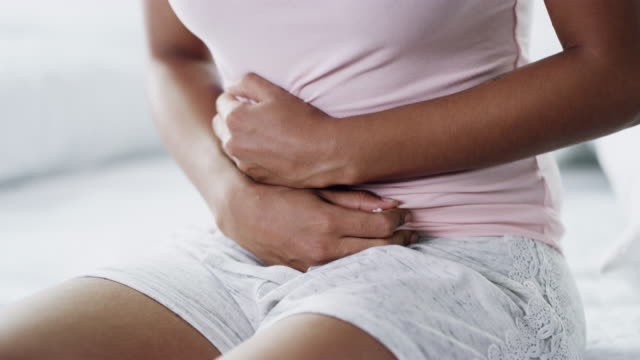
Periods are the time of the month that women dread the most. A monthly reminder that the female body can sometimes wage an internal battle, leaving many to silently suffer through pain that is often underestimated or dismissed. It’s not just a matter of inconvenience; period pains, medically known as dysmenorrhea, can be excruciating and debilitating, affecting women physically, emotionally, and socially.
In college, students often miss classes due to the period pains that they endure. Because of this, it’s not just a matter of personal discomfort, but it also becomes a significant educational barrier. The pain can be so severe that it affects their attendance due to colleges not accommodating cramps as an actual excuse.
Iyanni Stevens, a second-year animal science pre-veterinary major, said that she started dealing with painful periods around the age of 14. Her pain is so bad that it affects her mobility, fatigue, and appetite.
When trying to receive help about getting an excuse from one of her professors, her options were limited to doing that.
“For the most part the university doesn’t accommodate us women as far as attendance goes,” Stevens said. “Just recently I couldn’t make it to class because of how bad my cramps were and there was no way for me to get an excused absence just because I couldn’t make it to a doctor or the student health center for a note.”
Leylani Sime, a second-year business administration student, also shares the same experiences Stevens faced as well.
“My period pain comes in waves. Sometimes the pain is so unbearable I can’t walk or realize that sometimes I have any pain anywhere else,” Sime said. “Another downside I experience is the pain for a lengthy amount of time.”
Sime also mentioned that she doesn’t ask for support when she experiences these symptoms. Even with taking medications, she feels like there’s not that much additional help she can get.
“I feel like there is a certain stigma that a lot of us women go through all the same symptoms/ pain when we are on our period. I wish campus and physicians would stop categorizing all women’s pain as the same thing,” Sime said. “I wish more variety of feminine hygiene products were available on campus and that they push more students to come to the health center we have on campus to get checked.”
Understanding the issues patients who deal with period pains have, Dr. Adrienne George, MD of HCA Florida Capital Women’s Health in Tallahassee shares her input on the stigma around gynecological issues women face.
“I believe that because everyone perceives pain differently it is hard to define ‘normal’. However, if one feels the pain significantly interferes with their routine and is not treatable with over the counter medications that are outside of normal. The perception in society I believe is that pain is normal during this time,” George said. “There is very little recognition that there is for many women pain that goes beyond the norm and therefore these women are not given just empathy and help for treatment during this time.”
When asked about the importance of patients advocating for themselves, she hopes that more people come forward rather than not saying anything.
“If you do not talk about your concerns to your health care provider there is no way to expect help. We are not mind readers.” George said. “The first step is the hardest and that is finding someone you feel comfortable to talk with and who will listen. We may not have all the answers but usually there are several options to try.”
When dealing with the symptoms of periods, George emphasizes the importance of our lifestyles and diet since they have a great impact on people’s overall health. This includes the normal cycling of hormones during women’s menstrual cycles. It’s also important to understand that underlying inflammatory or immunocompromising medical conditions might worsen periods too, which could be the cause of the extreme pain.